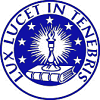Huguenot Edicts
Edicts written on vellum or paper determined the fate of the Huguenots.
1. The Edict of Nantes of 13.4.1598 (English or French)
The Edict of Nantes which provided the Reformed Protestants of France with a status allowing them to live and practice their religion relatively freely was promulgated by King Henry IV of France and Navarra (1553 - 1610) in Nantes in April 1598.
Read on - English (PDF) | Read on - French (PDF)
2. The Edict of Fontainebleau of 18.10.1685 (French)
Louis XIV proclaimed the edict on 18th October (old style) in the palace of Fontainebleau, south of Paris. Like his grandfather before him, Henry IV was motivated by the desire to unite his divided people, torn apart by sectarian warfare.
Read on (PDF)
The Edict of Versailles of 29th November 1787 (French)
Louis XVI (1754 - 1793) promulgated this edict of toleration for Huguenots and Jews in France on 29th November 1787. It was confirmed and registered with its 37 articles by the Parlement on 29.1.1788.
Read on (PDF)
4. a) The Edict of Potsdam of 29th October 1685 (German/French)
4. b) The Edict of Potsdam of 29th October 1685 (German)
This edict is worthy of special notice, its total edition exceeding that of the others (Kohnke).An abridged version was distributed in French to attract as many refugees as possible.
Read on a) (PDF) | Read on b) (PDF)
5. a) The Edict of Kassel of 18th April 1685 (German)
5. b) The Edict of Kassel of 12th December 1685 (French)
Before the revocation of the Edict of Nantes and before the promulgation of the Edict of Potsdam Landgrave Carl of Hesse-Kassel (1654 - 1730), himself of the Reformed faith, published his "Freiheitskonzession und Begnadigung", the privileges accorded to Huguenots wishing to settle in his territory.
Read on a) (PDF) | Read on b) (PDF)
6. The Declaration of Privileges for Hamelin of 1st August 1690 (German/French)
On 1st August 1690 in Hanover Duke Ernest August of Brunswick-Lüneburg (1629 - 1698) issued privileges to the Huguenot colony in the town of Hamelin on the river Weser. It was among the first privileges accorded to a single settlement.
Read on (PDF)
7. Collection for the refugees dated 4th February 1699 (German)
An appeal made in Cölln on the Spree to Christians in Berlin and Brandenburg to donate money for the second wave of refugees arriving from Switzerland. Collections were made in other German states as well for the fugitives, very often for the construction of their churches.
Read on (PDF)
8. The Concession of Liberties for Karlshafen of 22nd June 1704 (German)
The text of the Concession of Liberties issued in two languages in 1704 for the part founded in 1699 at the confluence of the rivers Diemel and Weser. The first set of privileges had been accorded by Landgrave Carl of Hesse in 1700. The new town which was originally called Sieburg was renamed Karlshafen in 1717 in honour of its founder
Read on (PDF)
9. Privileges for the French colony in Bückeburg dated 27th August 1711 (French)
Count Frederick Christian (1655 - 1718) and Count Albert Wolfgang (1699 - 1718) of Schaumburg-Lippe invited refugees to settle in their territory. They issued privileges in August 1711 for the French colony founded in the town of Bückeburg in 1692.
Read on (PDF)
10. Rights and Privileges for the French colony in Offenbach issued in 1710 (French)
Count John Philip of Isenburg-Offenbach (1655 - 1718) invited refugees to settle in his country for economic reasons. He was a Calvinist himself. In 1698 he allowed his co-religionists to settle in Offenbach and to found a French-Reformed Congregation which he endowed with privileges in 1710.
Read on (PDF)
|


